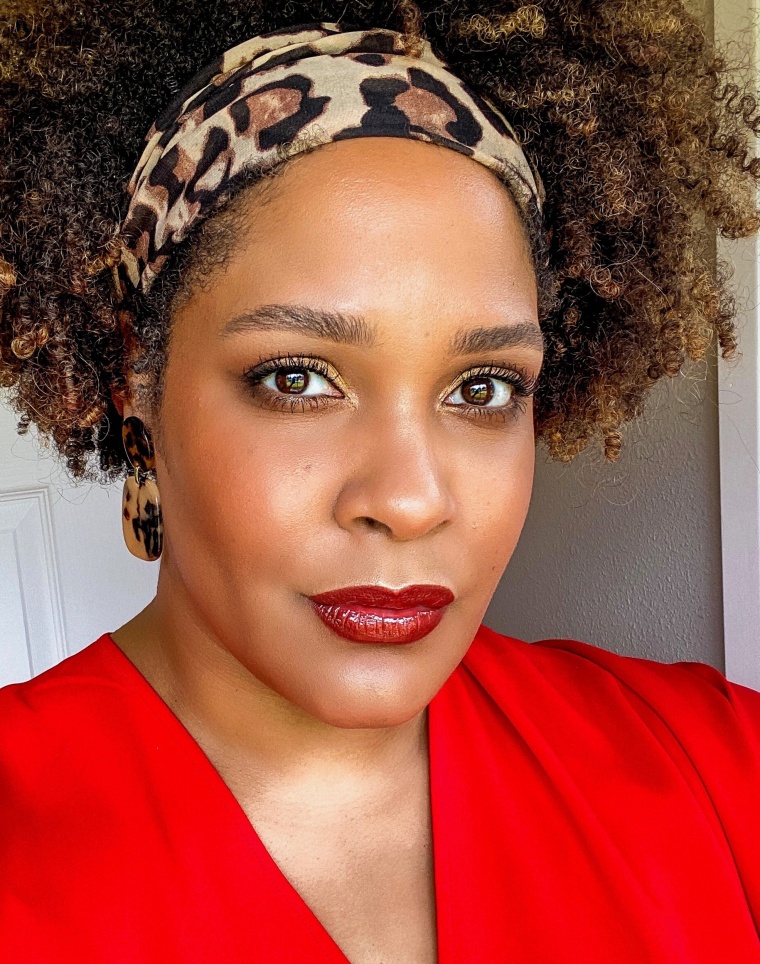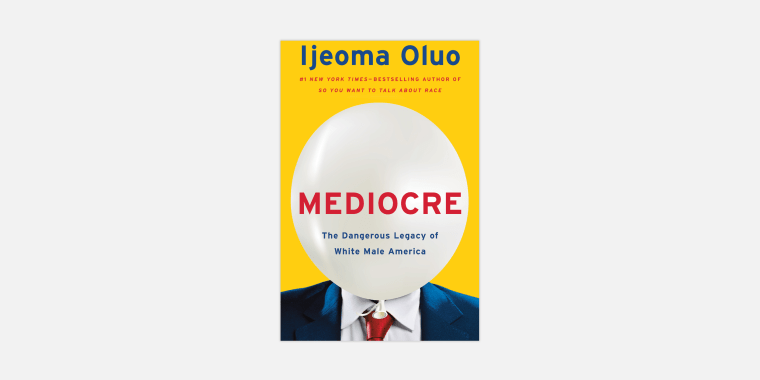When the author Ijeoma Oluo’s first book “So You Want to Talk About Race” was published in 2018, the world did not know the names of George Floyd, Breonna Taylor or Ahmaud Arbery, nor the fates that would befall them.
Still, Trayvon Martin, Sandra Bland, Eric Garner and a long line of Black people had already lost their lives to police and vigilante violence in recent years. Moreover, the presidency of Donald Trump had exposed deep fissures around race, social justice and inequity that exploded this year in the streets of America and beyond.
Now comes “Mediocre: The Dangerous Legacy of White Male America,” (Seal Press) which examines white male supremacy and its impact on America for generations.
In one passage, Oluo writes: “I do not believe that white men are born wanting to dominate. ... We need to do more than just break free of the oppression of white men. We also have to imagine a white manhood that is not based in the oppression of others. ... We must start asking what we want white manhood to be, and what we will no longer accept.”
This interview has been lightly edited and condensed for clarity.

How did you come up with what some might say is a very provocative book title?
Ijeoma Oluo: It didn't feel very provocative to me at the time. The idea of mediocre white men and the harm that they cause is not new. As a Black woman, I and my peers are very familiar with it. I've always tried to call a thing a thing. So when the title came to me it was pretty instant. Then when people were like, “Whoa, that's a provocative title," I was like, 'Oh, are we not calling it this anymore?"’
How did this book come together?
Oluo: When the inspiration for “Mediocre” hit, I immediately knew I was going to write this book. This book really stretched me as a writer. I already knew that it was going to be a more complicated book than my first, but I didn't know I would be writing it while being targeted by white supremacists, or during a pandemic, or during a global uprising for Black lives. But I love the book so much, I think it's a great book and I'm so proud of it.
This book comes amid racial unrest and protests demanding change. Is “Mediocre” related directly or indirectly to the struggles of people of African descent?
Oluo: This book illustrates clearly how this country must sustain the exploitation and oppression of Black people in order to protect white male power and white male mediocrity. We will not only see a lot of our history in this book, but also recognize what we have had to struggle against in the violent protection of white male power.
What do you want people to take away from the book?
Oluo: I want everyone who reads this book to see that we aren't just talking about a few bad dudes, we are talking about deliberately constructed identities and systems of power. I want everyone to see what this costs us and to investigate how we each support these harmful norms and systems. I especially want those who have the most to gain from their white male power or their proximity to white male power to investigate this. And for people of color — especially Black and Native people — I also want this book to stand against the collective gaslighting of our media and history books that tell us that this isn't happening, that there is no pattern or plan to the brutality we face, that we are just unlucky. I want this to reinforce that what is happening to us is real, and that we have every right to demand better.
There is a new wave of successful Black writers who are children of African immigrants like yourself. How does this background inform your work?
Oluo: For me? Not as much as it likely does for other children of African immigrants. My father came here from Nigeria in the '70s to go to college, met my mom, fell in love, all that jazz. But when I was a toddler and my brother was about a month old, he went back to Nigeria during the coup in 1982 and never returned.
I was raised by a single mom — a white American woman — in Seattle. I didn't speak to my father until a few days before he died. I don't have the intergenerational trauma of American anti-Blackness, outside of my father's limited experience here. I know that he carried a lot of trauma from colonialism and especially the Biafran war. But I know that there are parts of the Black American experience that I cannot speak to, even if every day of my life I've lived as a Black American.
There are so many Black American experiences. And the experience of children of Black immigrants is complicated by different forms of privilege and disadvantage, connection and separation. Where I can see that my specific experience really does inform my work is in the distant familial relationships I have with other Nigerian Americans, seeing the adjustment in coming from a country shaped by histories of white supremacist colonialism but where the current enforcers of that violent legacy are often fellow Black people, to a place where white supremacy and anti-Blackness is very upfront and in your face. It helps my work to remember that when we talk about racism in America, we are also talking about global white supremacy and capitalism.
You told me earlier in our phone call that you never expected to be a published author. Please share some of your journey.
Oluo: As a financially struggling Black single mom, the thought that I would have the freedom to pursue a creative career was just not even something I had ever entertained. I wrote for my own survival, because I was tired of feeling like I didn't exist in the broader narrative of social issues in the U.S. I was writing at night and at lunch breaks, never trying to do anything other than get my truth out. But the writing was connecting with people, and I was suddenly being asked to write.
When I signed the book deal and got my first advance, I paid four months of back mortgage payments — because writing really, really doesn't pay, especially not Black women. I had no idea the trajectory my career would take at that moment, I was just relieved to not lose my house yet. It's been a wild journey.
